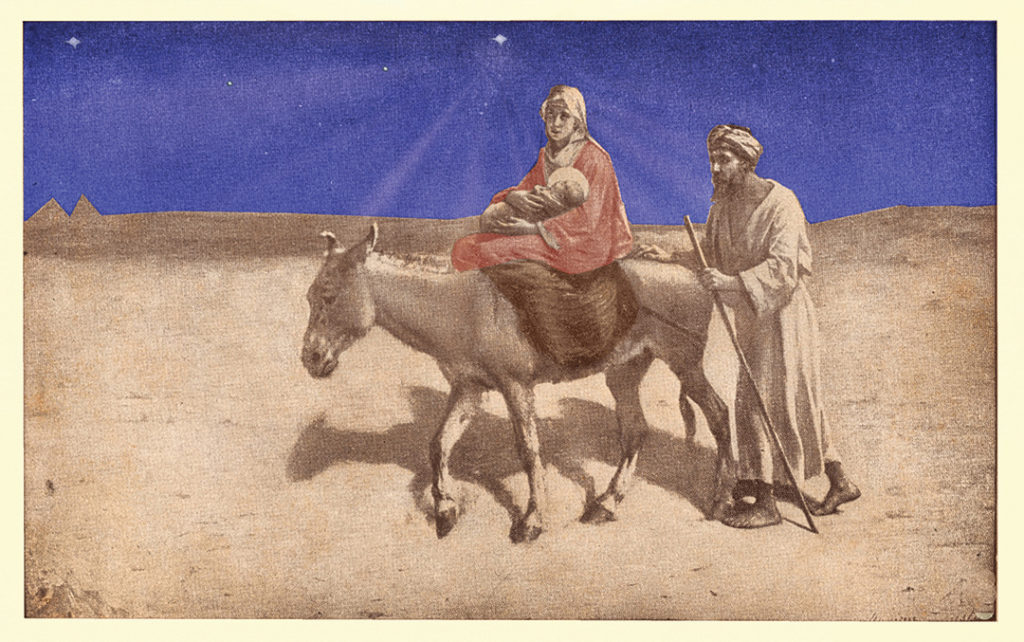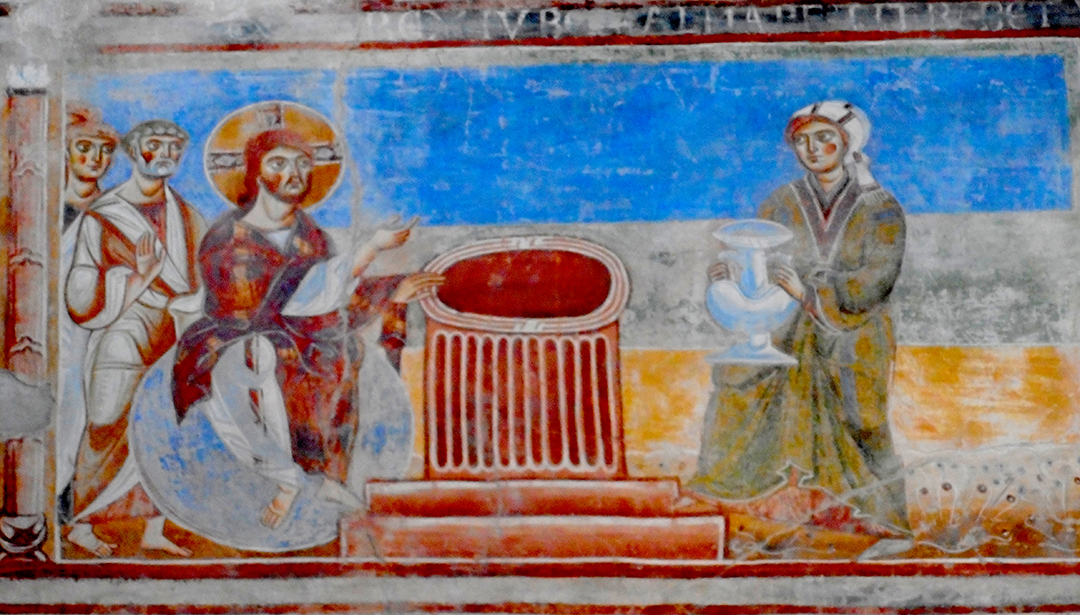THE LAST WORD

The Flight to Egypt (Mt 2: 13–15): A New Exodus of Liberation
BY Fr Silvano Fausti SJ | Biblist and writer
THE STORY of Jesus in this passage is presented as a journey; the journey of the Son, retracing the same path of His lost brothers and sisters.
The episode concludes with a biblical quotation: ‘Out of Egypt, I called my son’ (Hos 11: 1), which interprets the event in the light of the Word; the whole history of Israel is, in fact, a prophecy of the life of Jesus. He descends and ascends from Egypt, the Son accomplishes the new and definitive exodus. He is the light to every human being who dwells in darkness and the shadow of death (Mt 4: 15f).
The Nazarean, as the people of Israel, is liberated from Egypt and from exile and returns to the Land. The passage sums up the drama of Israel and of every person. On the one hand, there is the king and, on the other, the child; the good persecuted by the wicked. Initially, the good is the loser and the evil is the winner and the stronger; but in the end, the Innocent wins, precisely defeating evil with His own blood. The story, from an apparent victory of the powerful, becomes the story of the beloved son, who saves his brothers who had sold him (cf. Gen 50: 20).
In verse 13, an angel of the Lord appears to Joseph in a dream. Like his namesake, sold by his brothers, Joseph is a ‘dreamer’; in the depths of his pure heart, he sees God (Mt 5: 8). Dreams often seem unreal to us; instead, they are the principle of all reality. Even if one does not know it, one always realises his dreams. God’s dreams always come true in the end, even if they seem impossible to us (Ps 126: 1; Acts 12: 9; Lk 24: 11, 37).
The angel speaks the Word: ‘get up!’ which awakens us to life, in line with God’s dream. Joseph does not respond to the Word with words, but with his bodily reaction. The answer is himself executing God’s voice literally. He practises love in deed and in truth (1 Jn 3: 18), a worship pleasing to God (Rom 12: 1). To obey means to listen by standing in front, facing the other. He who obeys is like the Son because he hears and does His word.
Mary is mentioned at the beginning of the Gospel as the wife of Joseph (Mt 1: 18, 19). Here the ‘child and his mother’ is mentioned, always putting the child first. Mary, Israel and the Church are not the centre; they lead to the centre, which is Him! Both Jesus and His mother are entrusted to the hands of Joseph, the prototype of believers.
The King of the Jews flees to Egypt because of the king of Judea—just as Joseph fled to Egypt because of the envy of his brothers.
Herod represents the figure of the Pharaoh, present in Israel, in the Church, and in each one of us. In our ‘paganism’, just as there is the quest of the Magi to worship the Lord, so there is the quest of Herod, who, like Pharaoh, will kill his children. Jesus, who, like Moses, is miraculously saved, enters Egypt to fulfil the new exodus.
Jesus in Egypt lives as a stranger, in solidarity with the loneliness of all the oppressed, His brothers and sisters. Herod, like Pharaoh, has also an end; the Son, like Israel, sees his end. God from on high laughs at the mighty and their plots (Ps 2: 4). Jesus’ forced ‘flight’ is not the end, but only the fulfilment of God’s plan. Evil is its executor: ‘He has dug the pit into which he will fall’ (Ps 7: 16).
The coming out of Egypt (Hos 11: 1) represents the birth of the Son from the dark womb of slavery. Hosea was speaking of a new exodus, from an even harsher Egypt, the return from Babylon—a time which will mark the beginning of a new springtime between God and His people, which will blossom in the desert (Hos 2: 16).


